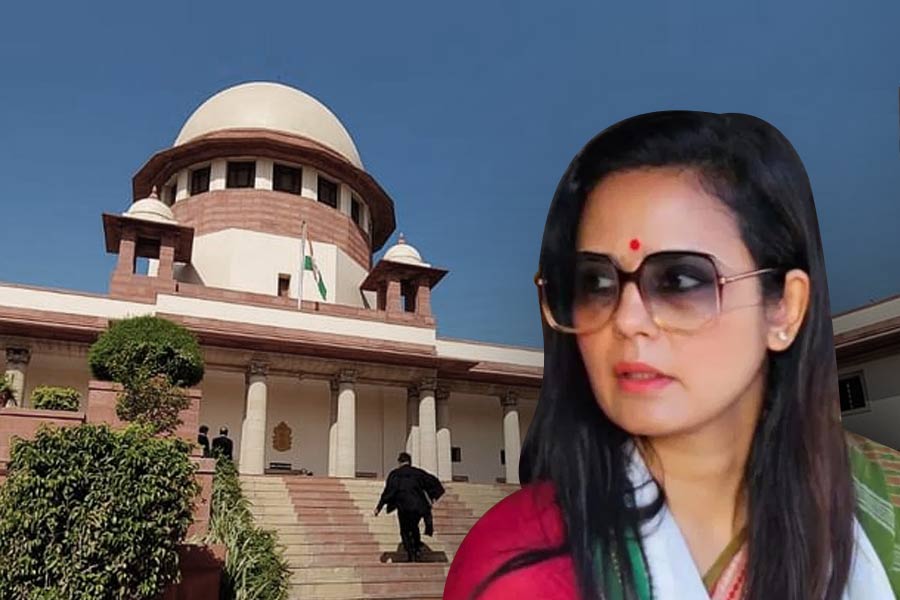The Supreme Court on Wednesday sought the Lok Sabha secretary-general’s response on Mahua Moitra’s petition challenging her expulsion from the Lower House in the alleged “cash-for-query” row but declined to entertain the Trinamul leader’s plea for an interim direction to enable her to attend the House proceedings on behalf of her Krishnanagar constituency.
“No, no, we can’t do that. We won’t be doing that. That will be virtually allowing your writ petition against the expulsion,” a bench of Justices Sanjiv Khanna and Dipankar Datta told senior advocate Abhishek Manu Singhvi who sought an interim order permitting Moitra to attend Parliament pending adjudication of the main matter relating to her expulsion.
Moitra had filed the petition challenging her expulsion on December 8 on the recommendations of the Lok Sabha ethics committee, which had held her guilty of “unethical conduct” and “contempt of House”.
Moitra had been accused of sharing her parliamentary login ID with others and accepting gifts from businessman Darshan Hiranandani in return for asking questions in Parliament.
The bench said it would hear Moitra’s plea for permission to attend Parliament on the next date of hearing on March 11.
When Singhvi requested that at least a notice be issued to the Lok Sabha secretary-general on Moitra’s plea for an interim direction to attend the House, Justice Khanna refused saying: “We are neither issuing notice nor dismissing it.”
The bench asked the secretary-general to file a response within three weeks and Moitra to file her rejoinder three weeks thereafter.
Solicitor-general Tushar Mehta, appearing for the Lok Sabha secretary-general, urged the bench not to issue a formal notice in the matter and questioned the jurisdiction of the top court to examine the issue as it involved parliamentary privileges.
“A sovereign organ of the State (Parliament) under the Constitution has decided its internal discipline evidence after giving her an opportunity. I am aware of the Raja Rampal case (an earlier Supreme Court ruling upholding court’s power to scrutinise Speakers’ actions, etc)… what would be the scope of the judicial review, if any at all? This will go against the very principle of separation of powers,” Mehta argued while raising preliminary objections to the top court entertaining Moitra’s petition.
Justice Khanna, heading the bench, said: “All issues are kept open and we will examine the jurisdiction of this court and its power of judicial review.”
However, Singhvi contended that the court had the jurisdiction to deal with the issue. “Parliament is being denuded of Opposition MPs. If you keep expelling MPs, it will become a rule of the majority,” Singhvi submitted.
He added: “If you pick up every irregularity and start expelling people, then there is no question of democracy.”
The bench also asked Singhvi whether no opportunity was given to Moitra to cross-examine businessman Hiranandani on whose complaint she was expelled.
The senior advocate complained that principles of natural justice were violated by not even allowing Moitra to cross-examine her accuser.










